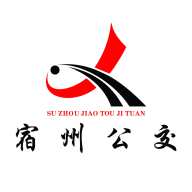What is the English Translation of 'BANKINDONESIA' and Which Country Does It Belong to? See Image.
作者:佚名 来源:未知 时间:2024-12-07
Bank Indonesia in English: Indonesia's Central Banking Authority

Bank Indonesia, the official name in English for Indonesia's central banking authority, plays a pivotal role in the nation's economic landscape. As the monetary and financial guardian of Indonesia, it is responsible for maintaining the stability of the Indonesian rupiah, fostering economic growth, and ensuring the soundness of the country's financial system. This article delves into the origins, functions, and importance of Bank Indonesia, while also examining its relationship with the Indonesian government and the broader economy.
The establishment of Bank Indonesia dates back to the early days of Indonesia's independence. Following the country's declaration of independence in 1945, there was a pressing need for a central banking institution to oversee monetary policy, manage currency, and regulate the financial sector. To this end, the Indonesian government, led by President Sukarno, established Bank Indonesia on July 17, 1953. The new institution inherited the responsibilities of the previous Nederlandsche-Indische Bank (the Dutch colonial bank), and it became the sole issuer of currency and the main regulator of the Indonesian financial system.
Since its inception, Bank Indonesia has undergone numerous transformations and reforms. One of the most significant milestones was the passing of the Bank Indonesia Law in 1999, which granted the institution greater autonomy and independence from the government. This legal framework ensured that Bank Indonesia could conduct monetary policy without undue political interference, thereby enhancing its credibility and effectiveness.
At its core, Bank Indonesia's primary mandate is to maintain price stability. This means ensuring that inflation remains within an acceptable range, thereby preserving the purchasing power of the rupiah. To achieve this goal, Bank Indonesia employs various monetary policy tools, such as adjusting the interest rate (BI rate), managing the liquidity in the banking system, and intervening in foreign exchange markets. By doing so, it aims to create an environment conducive to sustainable economic growth and job creation.
In addition to maintaining price stability, Bank Indonesia also plays a crucial role in fostering financial stability. This includes overseeing the banking sector, ensuring that banks and other financial institutions operate prudently, and protecting depositors' interests. To this end, Bank Indonesia conducts regular stress tests, monitors financial institutions' credit quality, and enforces strict prudential regulations. Furthermore, it collaborates with international financial organizations and regulators to share best practices and address emerging risks.
Bank Indonesia's relationship with the Indonesian government is intricate and multi-faceted. While the institution enjoys independence in conducting monetary policy, it maintains close coordination with the government on economic policy matters. This includes participating in economic policy forums, providing economic analysis and forecasts, and collaborating on structural reforms aimed at enhancing productivity and competitiveness.
One notable example of this collaboration is the implementation of inflation targeting. Since adopting this framework in 2005, Bank Indonesia has worked closely with the government to anchor inflation expectations and foster macroeconomic stability. By committing to a clear and transparent monetary policy strategy, Bank Indonesia has been able to build credibility with the market and achieve its inflation targets consistently.
The Indonesian economy has grown rapidly over the past few decades, driven by strong domestic demand, robust exports, and structural reforms. Bank Indonesia has played a pivotal role in this growth by providing a stable monetary environment and fostering financial deepening. The banking sector has expanded significantly, with the number of banks and financial institutions increasing steadily. This has led to greater access to finance for businesses and households, which in turn has supported economic activity and job creation.
However, the Indonesian economy faces several challenges, including high inflation, volatility in the foreign exchange market, and financial sector risks. To address these challenges, Bank Indonesia continues to refine its monetary policy strategy and strengthen its financial regulatory framework. For instance, it has implemented macroprudential policies to mitigate the risks associated with credit growth and asset price bubbles. It has also enhanced its foreign exchange market intervention capabilities to stabilize the rupiah against external shocks.
In recent years, Bank Indonesia has placed greater emphasis on financial inclusion and digital financial transformation. Recognizing the potential of digital technology to drive economic growth and financial inclusion, the institution has embarked on a series of initiatives aimed at promoting digital payments, financial literacy, and access to finance for underserved populations. These initiatives include promoting electronic money, developing digital payment infrastructure, and collaborating with private sector partners to expand financial services reach.
Moreover, Bank Indonesia has been actively engaged in international financial cooperation and integration. As a member of the ASEAN+3 Macroeconomic Research Office (AMRO) and the Bank for International Settlements (BIS), it participates in regional and global economic policy dialogues and surveillance. This collaboration helps Bank Indonesia stay abreast of global economic trends, share best practices, and address cross-border financial risks.
In conclusion, Bank Indonesia has emerged as a key pillar of Indonesia's economic landscape. Its role in maintaining price stability, fostering financial stability, and supporting economic growth cannot be overstated. As the Indonesian economy continues to evolve and face new challenges, Bank Indonesia will need to adapt its monetary policy strategy and regulatory framework to ensure that it remains relevant and effective. By leveraging digital technology and strengthening international cooperation, Bank Indonesia can continue to contribute to Indonesia's economic prosperity and financial inclusion for all.
- 上一篇: 猜生肖:富贵梦醒三更时,人生如棋局局新?
- 下一篇: 夜航新闻在线
































